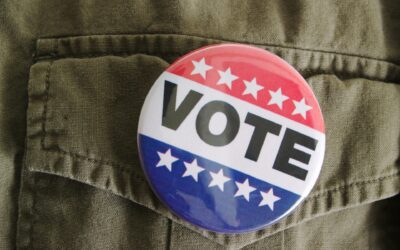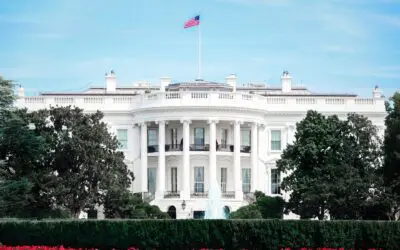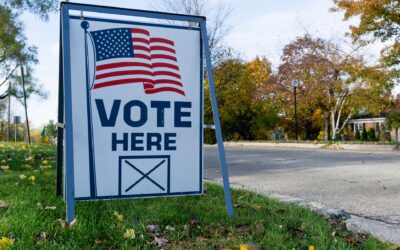Millennials are poised to give Hillary Clinton and Democrats a big margin in November’s election if they are engaged to vote and if progressives are smart in dealing with the third party vote. Millennial voters are in a very different place than they were two weeks ago, according to a new web-survey of likely millennial voters in the eleven most competitive battleground states for Women’s Voices Women Vote Action Fund.[1] Democratic millennials have started to consolidate for Clinton, but their Republican contemporaries have not done the same for Trump. Gary Johnson’s millennial vote is now a repository for most of those anti-Trump Republicans.
The biggest, genuine problem is whether millennials will vote. The emerging battle over the economy – centered on taxes, trickledown and corporate responsibility – is getting their attention. Millennials are in an anti-corporate mood and desperate for change, and this new focus may move them to the polls on Election Day.
The vote, shift to Clinton and partisan consolidation
Clinton now has a huge 25 point margin over Trump in a four-way race, comparable to Obama’s 2012 performance with millennials in these same battleground states. Among white millennials, Clinton’s margin is 14 points stronger!
While she is getting 54 percent of the millennial vote, down from Obama’s vote in 2012 and 2008, Trump’s vote sits at only 29 percent. Many Republican millennials are supporting Gary Johnson who is getting 14 percent of the vote.

Clinton is wining huge margins with unmarried women, including white unmarried women (+41 Clinton and +22, respectively), and is winning 78 percent of minority millennial voters. She has a 12 point margin with white college graduates, including a 20 point margin with the white college women, and gets a respectable 44 percent with white working class millennial women.
Page Gardner, Founder and President of WVWVAF, said the new poll demonstrates the strength of millennials and other members of the Rising American Electorate (millennials, people of color and unmarried women) to shape elections. “Unmarried women favor Clinton over Trump, creating a massive ‘marriage gap’ between single and married women. For white unmarried women, the gap has become a potentially insurmountable divide for Trump, and our new poll shows that millennials also are uniting around Clinton,” Gardner said. “The electoral power of the Rising American Electorate has never been more evident. They clearly are in a position to determine election outcomes up and down the ballot.”
At the heart of the millennial story are the different reactions among partisans. Millennial Democrats are now giving Clinton 91 percent of their votes, up from 83 percent in our earlier battleground. With her two-way vote at 96 percent, there is reason to believe Democrats can be further consolidated, including squeezing more third party votes.

Republicans, on the other hand, are not consolidating around Trump – and that has allowed Clinton’s margin to grow. Trump is getting just three-quarters of the Republican millennials in a four-way vote and it gets no better after messaging at the end of the survey (77 percent). In a two-way ballot, he gets only 85 percent of GOP identifiers at the beginning and end of the survey. That 15 percent is determined not to support Trump.
Gary Johnson’s voters are mostly Republican anti-Trump voters, and progressives should allow Johnson to play that role.
Attacks on Johnson do not have much of an impact on his vote and the margin. In fact, this survey includes an experiment that shows third party voters shift 8 points to Clinton in a two-way ballot when they instead hear messages about corporate responsibility and a contrast with Trump on taxes and trickledown economics. Attacks on Johnson only produce a 1 point shift.
Will Millennials vote?
Millennial enthusiasm is a huge issue and is unchanged from earlier polls. A significant gap is emerging between millennials and other voters on their level of interest in voting. Our September battleground survey for WVWVAF found 71 percent of all likely voters gave the greatest possible score for enthusiasm for voting, but just 49 percent of millennials in this survey say they are extremely interested in voting this year.

Their lack of enthusiasm is reflected in the 41 percent of Trump voters and 46 percent of Clinton voters who say their vote is more a vote against the other party’s nominee than for their candidate.
Anti-corporate millennials want revolutionary change
Millennials want big change and are deeply frustrated with an irresponsible corporate America and its undue influence over politicians. The intensity of their feelings is hard to underestimate. Nearly 60 percent of millennials say “we need a revolution in this country and we don’t have time for incremental change” – including 50 percent of Clinton voters. That gets your attention.

The focus of their revolutionary angst is the regime of trickledown economics and corporate governance. Just 18 percent of millennials have a favorable reaction to “trickledown economics” and their antipathy crosses party lines. They blame the big banks and corporate CEOs they believe use government to lock in unfair advantages while betraying their workers and paying too little in taxes. Millennials are primed for a message that aims to raise taxes on the rich and reign in corporations, particularly the third party voters who are the most negative towards corporate executives and banks.

Millennials need to hear that Clinton is upset with what is happening with corporations and politicians and she will take on the corporate special interests. A 59 percent majority says, “Hillary Clinton is too beholden to special interests to look out for people like me.” That includes more than half of Sanders voters who are, unsurprisingly, the biggest targets for Clinton to consolidate – one-quarter are not yet voting for Clinton.
Their turning out and voting is dependent on Clinton continuing to put forward the powerful economic message she has been delivering.
Economy, trickledown, taxes and corporate responsibility
In our dial meter testing of the first presidential debate, Clinton’s economic message shifted voters toward her on handling the economy, jobs and taxes. Those gains also produced significant shifts in her personal favorability, and whether she is looking out for the middle class and is honest and trustworthy.
This survey tested Clinton’s economic message (in effect, the speech she delivered in Toledo) and found it is the key to building intense support and getting millennials to vote. Her message is infused with anger at corporate irresponsibility and centers on creating an economy that works for everyone, not just those at the top. She lays out her economic plans and makes clear the rich have to pay their fair share and corporate CEOs need to be held accountable.

The best reason to vote for Clinton is the contrast between her and Trump on taxation and trickledown economics: Clinton wants to end the reign of trickledown economics and raise taxes on the rich while Trump wants to enact the biggest tax cuts in history for the top 1 percent and his family. This is also the best reason to vote for Clinton among the Sanders voters who need to be consolidated: one-quarter said this was a very convincing reason to vote for Clinton.
Tax & trickledown contrast
Clinton wants to end the reign of trickle-down economics and raise taxes on the wealthy that have seen all the new income gains so they pay their fair share and so we can invest in the middle class. Trump will enact the biggest tax cut for the one percent in history, including a $4 billion dollar tax break for his family, and make inequality even worse.

The powerful contrast between Clinton and Trump on trickledown economics, together with her current economic message, is likely to consolidate the Democratic vote and give these change voters a reason to cast a ballot.
Other top reasons to vote for Clinton among millennial targets include the contrasts between her and Trump with respect to reproductive rights, dealing with climate change, and preparedness to be Commander in Chief. Climate change is particularly important to millennials and climate denial is a disqualifying position: 62 percent say it “is a severe threat and I won’t vote for a candidate who won’t take action to address it.”
These millennial voters are not cynical about the choice. They believe there are “huge” differences between Trump and Clinton and they do think the election result will make a difference in their lives.

Progressives now have a strategy for getting millennials to act on their continued belief that this election matters.
[1] This online survey of 1,000 likely millennial voters took place October 1-4 in 11 presidential battleground states: AZ, CO, FL, IA, NV, NH, NC, OH, PA, VA, and WI. Likely voters were determined based on stated intention of voting in 2016, and vote history in 2012 and 2014. Millennials were defined as being born in 1980 or later.




